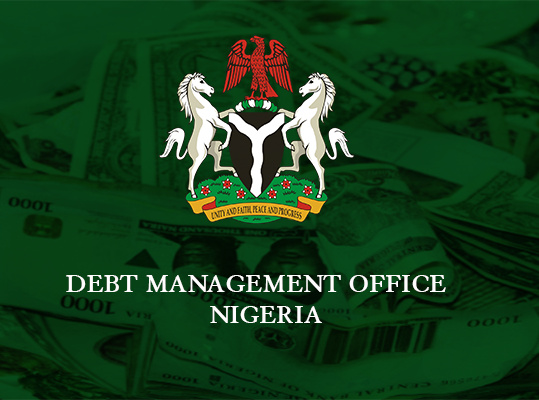Investors’ quest for higher rates to define DMO’s ₦150 bln bond offer

The outcome of the ₦150 billion FGN bond offer by the Debt Management Office, DMO, this week will be determined by investors’ quest for higher interest rates on fixed income instruments in line with recent upsurge in the inflation rate.
At the last auction held in November 2018, the DMO sold only ₦39.5 billion representing 35 percent of the ₦115 billion bond offered due to its unwillingness to accept investors’ demand for higher interest rate.
In a statement announcing the auction results, the DMO stated: “Although subscription levels were higher than the amount allotted, it was observed that the DMO was unwilling to accept higher rates from subscribers in order to moderate debt service cost and maintain market stability as the rates at which each of the bonds were allotted were close to their secondary market yields.”
This week, the DMO will conduct its first FGN bond auction for the year. The offer totalling ₦150 billion worth of bonds comprise: ₦50 billion worth of 12.75% FGN APR 2023 (5-Year Re-opening); N50 billion worth of 13.53% FGN MAR 2025 (7-Yr Re-opening); and ₦50 billion worth of 13.98% FGN FEB 2028 (10-Yr Re-opening).
Analysts at Lagos based Cowry Assets Management Limited opined that the DMO may be willing to accommodate investors demand for higher rates in line with the rise in inflation to 11.44 percent in December.
They said: “We expect the bonds to be issued at higher stop rates, given the rising inflationary pressure in the near-term.”
They also projected that the ₦254.64 billion worth of primary market treasury bills (TBs) to be issued by the CBN this week will be issued at higher stop rates, adding that cost of funds will further drop this week in response to inflow of over ₦400 billion worth of maturing TBs this week.
”In the new week, T-bills worth N446.68 billion will mature via the primary and secondary markets which will more than offset T-bills worth ₦254.64 billion to be auctioned by CBN via the primary market; viz: 91-day bills worth ₦7.85 billion, 182-day bills worth ₦69.57 billion and 364-day bills worth ₦177.22 billion. Hence, we expect liquidity ease in the financial system to be sustained with resultant moderation in interbank rates.
Inflationary pressure
Also, we expect stop rates to further increase, given the rising inflationary pressure in the near-term,” they said.
CBN injects $500m as naira depreciates in parallel market
On the foreign exchange scene, the CBN injected about $500 million into the interbank foreign exchange market last week even as the naira depreciated for the third consecutive week in the parallel market.
According to naijabdcs.com, the live exchange rate platform of the Association of Bureaux de change Operators of Nigeria, ABCON, the parallel market exchange rate rose for the third consecutive week to ₦362 per dollar last week from ₦361 per dollar the previous week, indicating ₦1 depreciation for the nation’s currency. Hence the naira has depreciated by ₦2 in the parallel market in three weeks.
The naira however appreciated by 33 kobo in the Investors and Exporters (I&E) window last week. Data from FMDQ showed that the indicative exchange rate for the window dropped to ₦362.46 per dollar last week from ₦362.79 per dollar the previous week.
The CBN in addition to the $210 million injected on Tuesday, injected $289.76 million on Friday as well as CNY 38.7 million, bringing its intervention for the week to about $500 million.
Announcing special intervention held on Friday, Director, Corporate Communications, CBN, Mr. Isaac Okoroafor said: “Following its maiden Monetary Policy Committee (MPC) meeting for 2019, the Central Bank of Nigeria (CBN) on Friday, January 25, 2019, injected the sum of $289.76 million into the retail Secondary Market Intervention Sales (SMIS) and CNY38.70 million in the spot and short-tenored forwards segment of the inter-bank foreign market.”
He added that the dollar-denominated interventions were for transactions in the agricultural and raw materials sectors.
On the spot and short-tenored sales in Chinese Yuan, he said they were similarly for payment of Renminbi denominated Letters of Credit for agriculture and raw materials based on bids received from authorized dealers.
While reiterating the apex bank’s support to the inter-bank foreign exchange market, he disclosed that the CBN’s management was pleased with the level of stability at both the Bureau-de-Change (BDC) and the Investors’ and Exporters’ (I&E) window of the foreign exchange market.
According to him, the CBN management was also satisfied with the current implementation of the Bilateral Currency Swap Agreement (BCSA) with the Peoples Bank of China (PBoC), coupled with a recent inflow of about US$2.8 billion Euro bond.
Mr. Okorafor expressed confidence that the foreign exchange market in Nigeria will continue to enjoy stability in the coming months and beyond, given the marginal increase in the country’s external reserves.









0 Comments